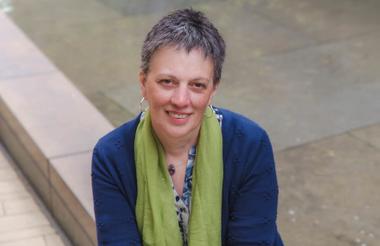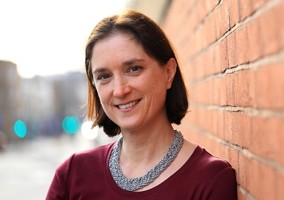In Jane Ide’s first six months leading ACEVO, the country has seen three prime ministers and three civil society ministers.
Previously chief executive of NAVCA for four years, Ide re-entered the world of charity infrastructure in May after leading charity Creative and Cultural Skills since 2020.
Despite working under ongoing political turmoil since joining ACEVO, Ide insists she has “the best job in the world” and feels privileged to be a part of something bigger than herself.
‘The underlying issues haven’t changed’
With political instability and economic crisis underlying the last six months, Ide says “the reality is, the underlying issues haven't changed”.
“The cost-of-living crisis is still absolutely the thing that everybody's talking about.”
ACEVO’s members, who are leaders of civil society organisations, have spoken with “real pain” about what they are seeing as a result of the crisis, says Ide.
“They're used to working on the front line – this is not new. But it's getting harder and harder to see how we're going to get people through some of this stuff.”
‘A very emotive situation’
When asked about charities filling in gaps left by government intervention, Ide replies “those sticking plasters are getting pretty frayed” and so are the people working in the sector as they deal with permacrisis.
“We support our members as individual chief executives and their stress levels and their ability to bounce back is being continually reduced because there's a constant challenge. There's this constant drumbeat of what next, what next?
“That does make it very, very hard because you can do an awful lot for communities that are in need if you yourself are in a fairly stable place. If you are actually awake at three o'clock in the morning thinking: ‘I don't know whether we're going make salary next month and we don’t know if we can pay the bills, and if we don’t, what’s going to happen to all these people?’ Then it becomes harder and harder to actually deal with the fact that the people you're trying to serve are also on the edge. It's a very emotive situation to be in.”
That is why it is so important for chief executives to look after their own staff’s health in these trying times, she says.
Ide says that a paramedic once explained to her: “If you're called out to somebody who's had electric shock, and they're lying in a pool of water, the instinct for the average civilian would be to rush in and pull away the electric cable - at which point you'd be dead.
“You have to protect yourself first – you have to make sure that you are in a position to help that patient. And the same is absolutely true for chief executives. You have to balance your own life, find ways to manage the workload and get the support you need by investing in relationships.”
‘Tap into your staff for solutions’
“We need to focus on the wellbeing and the resilience of our staff,” Ide continues.
“It’s the right thing to do and from a pragmatic point of view, particularly when we're also in a recruitment crisis. If you don’t, your crisis is going to get even bigger because you will lose them either through ill health or because they'll go and work somewhere else.
“So, I think there's something really important about paying attention to the small things. Listen to what people are telling you. Tap into your staff for solutions and suggestions about how you might rethink how you deliver a service”.
Ide stresses that the recruitment crisis is apparent in all charities rather than just some subsectors.
Political stability is key for civil society
Ide welcomes the return of a “degree of political stability” in the appointment of prime minister Rishi Sunak and a new charities minister, something she says is key for civil society.
“It is extremely difficult to engage in a relationship with the other party when that relationship keeps changing. You cannot build a relationship with somebody who’s not there for a week or a month or whatever.
“You move at the speed of trust, but you can only have that trust if you've got those relationships and if you've not got those relationships, you can't make inroads.”
Speaking before Stuart Andrew was appointed, Ide says she hopes the new minister is in post for longer than his predecessors as she has enjoyed “great relationships” with some previously in the position.
Ide says she was encouraged by some of Rishi Sunak’s first speech in which he mentioned “integrity”, “humility” and “compassion”.
“I think many of us felt it was really good to hear those words being used because they haven't been used for a long time. But we've really got to see that being put into action.”
Increased collaboration in recent years
Throughout every crisis, the charity sector continues to drive amazing work, Ide says. Turning towards collaboration in recent years has been one positive which was borne out of the pandemic, she adds.
“I think one of the things that I have seen change quite dramatically over the last four years or so, is that sense of collaboration. There's always been some organisations that have worked really well together and that's always been really great. But I think now there's much more a sense of… We know we can go further faster if we go together.”
Related articles












